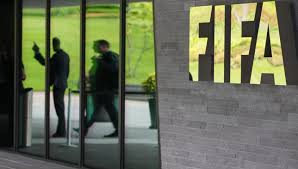By Samindra Kunti
November 23 – Belgium’s leading university KU Leuven has screened 35 Olympic sports federations on good governance. The report suggests FIFA is among the better run international sports federations.
The report focused on the legitimacy crisis in international sports governance and presented the ‘Sports Governance Observer [SGO],’ a benchmarking tool for good governance in international sports federations based on the criteria of transparency and public communications, democratic process, checks and balances and solidarity. The report was commissioned by the NGO Play the Game and the Danish Institute for Sports Studies. Dr. Arnout Geeraert, a research fellow at KU Leuven’s faculty of social sciences, executed the report.
Last May FIFA was shaken to its core in Zurich after a series of arrests and US indictments of some of football’s leading officials from North and South America. The sport’s governing body is still in the process of recovering with the next elections for the FIFA presidency drawing near. Yet Geeraert’s research indicated that FIFA is not as badly governed as many may perceive.
“I have applied the SGO on all Olympic sports federations, those of which their respective sports are enlisted for the Olympic Games,” Geeraert told Insideworldfootball. “FIFA is an Olympic sports federation. The last few months FIFA has been besmirched, and rightly so. Since the 70’s a lot has been going wrong at FIFA: corruption and fraud [have become] warp and woof. Yet the media have often lost objectivity and nuance in their coverage about FIFA.”
“FIFA got a score of 68 out of 100 on the SGO-index,” highlighted Geeraert. “That’s of sorts for an organisation of FIFA’s magnitude and importance, but the other international sports federations are far worse [than FIFA].”
“Why this relatively good score for FIFA?” said Geeraert. “It reflects the important reforms which have been implemented in the last three years at FIFA. In 2011 an independent reform commission was founded under the leadership of professor Mark Pieth, which led to a more robust ethical committee, at least on paper. In the last few months we have seen the positive effects.”
Geeraert rejects the notion that those recent effects are solely the result of the interventions led by the FBI and Swiss authorities. After 2011 FIFA created plenty of task forces to deal with its internal strive, but they yielded little result before the authorities intervened.
“The more robust ethical committee was implemented before the FBI interventions, but only now does it seem to work rigorously and free of external intervention,” said Geeraert. “The interventions sorted effect, but the structures had been in place. It’s important to note that just a part of the reform commission’s recommendations were implemented.”
“If you would have applied the SGO on FIFA a decade ago, you’d get a dramatic score,” said Geeraert. “There were structural changes, but they were not sufficient. There need to be strict financial audits with specific attention for the awarding of subsidies for international projects, and [there needs to be] attention for limited mandates. There needs to be a bigger participation of football players in governance, an objective bidding process for the World Cup and so on. There is still a lot of room for improvement.”
“FIFA’s result is more of an indication about the other international sports federations,” elaborated Geeraert. “26 out of 35 Olympic sports federations have a score below 50. The governance situation in general is quite dramatic. The golf federation, the triathlon federation, there are plenty of problems and those are often translated into corruption scandals at federations that are less media-centric. The Mexican Ruben Acosta [formerly of the International Volleyball Federation] got away with pocketing $33 million in personal commissions; Hassan Moustafa of the International Handball Federation raised his own salary and that of his board members by 500% and can’t explain what happened to €300,000 in travel reimbursements. At the International Weightlifting Federation the Hungarian Tamas Aján failed to account for the disappearance of an estimated $5 million of IOC grants.”
World Rugby, which has just organized a very successful 2015 Rugby World Cup in England, also failed to pass the SGO test. Word Rugby had a 45.8 mark. “The biggest problem with World Rugby is that there are too few checks and balances,” explained Geeraert. “There is a very weak ethical committee, a weak audit committee, no ethical code, no decent conflict of interests rules. They have got a lot of work to do.”
In football, good governance failure is endemic. Last week Transparency International released a report, highlighting that football is the perfect breeding ground for corruption: a staggering 81% of FIFA’s 209 national associations have no financial records available.
“That’s another problem,” acknowledged Geeraert. “There is a clear link between the national and international level. One level will only improve if the other does so. You can’t expect national associations to change the international level when they themselves do not have robust structures in place.”
“Few organisations and political actors can impose reforms at FIFA or other federations,” concluded Geeraert. “Switzerland has an important role as the host country for the majority of international sports federation. Their current legislation doesn’t suffice, it imposes too few organizational rules. I think improvements will only come at FIFA and other federations if everyone keeps up the pressure.”
Contact the writer of this story at moc.l1745032113labto1745032113ofdlr1745032113owedi1745032113sni@i1745032113tnuk.1745032113ardni1745032113mas1745032113

